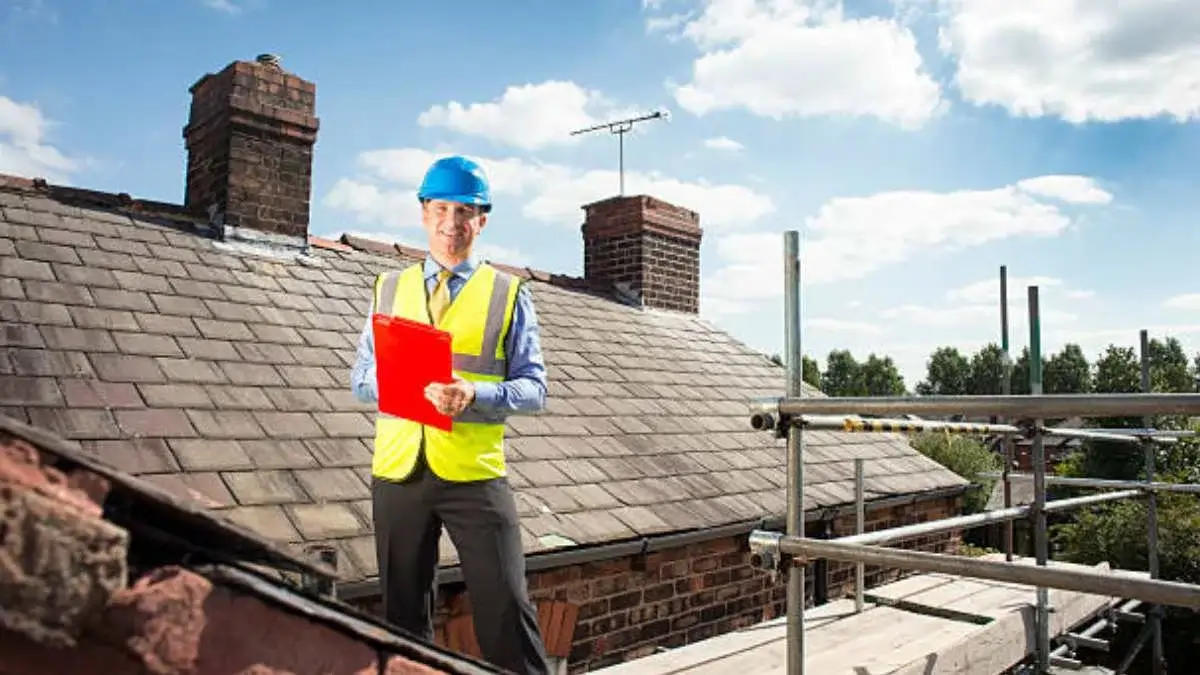HOME IMPROVEMENT
What Every Homeowner Should Know Before Hiring a Roofing Company

Introduction
Hiring a roofing company is a major decision that impacts the long-term integrity of your home. Whether you’re dealing with a leaking roof, storm damage, or planning a full replacement, the quality of the work you receive depends heavily on the contractor you choose.
Too often, homeowners rush into signing contracts without asking the right questions or understanding what to expect. This can lead to project delays, budget overruns, and even substandard results that require costly repairs down the road. The good news? A bit of knowledge up front can save time, money, and stress.
If you’re preparing for a roofing project, here’s what you need to know before you commit to any roofing company.
Table of Contents
1. Licensing and Insurance Are Non-Negotiable
Why It Matters
Reputable roofing contractors carry the appropriate state and local licenses and maintain both liability insurance and worker’s compensation coverage. This protects you from liability if a worker is injured on your property or if damage occurs during installation.
Always ask for proof of both before allowing any work to begin. Don’t rely on verbal confirmation—request documentation and verify with your local regulatory authority if necessary.
What to Look For
- A valid business license for your state or municipality
- General liability insurance with up-to-date coverage
- Worker’s compensation insurance to cover laborers
Any roofing company unwilling to provide this information upfront should be avoided.
2. Local Reputation Matters More Than a Low Bid
Choose Local Over National Chains
It’s tempting to go with the lowest quote, especially when facing an unexpected roof repair. But lower prices often come at the expense of experience, quality materials, or long-term support.
A local roofing company typically has a better understanding of regional weather patterns, permit requirements, and material preferences. They’re also more likely to stand behind their work and be available for future repairs or warranty claims.
Look for contractors with a permanent business address nearby—not just a website or phone number. Long-term presence in your area is often a sign of stability and reliability.
3. Get the Details in Writing—Always
Protect Your Investment
A handshake agreement isn’t enough for a roofing project. Always insist on a detailed contract before any work begins. This should outline the scope of work, materials to be used, project timeline, total cost, payment schedule, and warranty terms.
Be wary of vague or overly simple agreements that leave room for unexpected charges or miscommunication.
Your Contract Should Include
- Specific shingle or roofing material brand and type
- Number of layers to be removed (if any)
- Flashing and ventilation details
- Cleanup and debris removal responsibilities
- Start and end dates
- Warranty details—both material and labor
Character Exteriors encourages homeowners to take their time reviewing these documents. It’s not just about protection—it’s about setting clear expectations for both sides.
4. Ask About Warranties—Both Material and Workmanship
Know What’s Covered
Many roofing materials come with manufacturer warranties, but those don’t always cover improper installation. That’s why it’s essential to work with a roofing company that also offers a workmanship warranty on labor.
You’ll want to know:
- How long the workmanship warranty lasts
- What kinds of issues are covered (e.g., leaks, shingle blow-off, flashing errors)
- What voids the warranty
- Whether the warranty is transferable to a new homeowner
Understanding these terms upfront ensures you aren’t left footing the bill for avoidable repairs later.
5. Don’t Skip the Roofing Inspection
Assessment Before the Estimate
Before providing a quote, a reliable contractor will inspect your roof thoroughly—inside and out. This means checking the attic for signs of water damage or poor ventilation, examining flashing and drip edges, and looking at the condition of shingles and underlayment.
Avoid companies that provide quotes without seeing your roof in person. Remote or “drive-by” estimates can lead to cost overruns once the real issues are uncovered mid-project.
Questions to Ask During the Inspection
- Will the decking be inspected or replaced if needed?
- How will attic ventilation be handled?
- Are there signs of mold, leaks, or structural sagging?
The answers to these questions help ensure your new roof performs as expected and won’t just be a cosmetic upgrade.
6. Clarify the Cleanup Process
Construction Can Get Messy
A roof replacement involves tearing off old materials and installing new components, which often leads to debris, nails, and leftover packaging. Reputable contractors will outline their cleanup process—including how they plan to protect your property during installation.
Ask if they’ll:
- Use tarps or boards to shield landscaping and siding
- Remove all debris daily or only at the end
- Use a magnet to pick up stray nails in your yard
Cleanup may seem like a small detail, but it can be a major point of frustration if overlooked.
7. Be Wary of High-Pressure Tactics
You Deserve Time to Decide
Some contractors try to rush the process, insisting you sign immediately to “lock in a deal” or avoid a price hike. These high-pressure sales tactics are often used to prevent homeowners from comparing quotes or asking more questions.
Take your time. Compare at least two to three estimates from different roofing companies, and read online reviews to spot trends in customer experiences.
If a contractor doesn’t allow space for you to think—or pressures you to pay in full upfront—it’s a clear red flag.
8. Timing and Weather Contingencies
Prepare for the Unexpected
Even with a clear project schedule, weather can be unpredictable. A good roofing company will include weather clauses in their contracts and communicate openly about delays.
Make sure you understand:
- How weather impacts scheduling
- What happens if work is paused mid-project
- Whether your home will be protected if the job spans multiple days
For large jobs, ask whether the company limits how many projects they schedule at once. A contractor stretched too thin may leave you waiting longer than expected.
9. Payment Structure Should Be Transparent
Avoid Paying Everything Upfront
A standard payment structure involves a deposit to secure materials, a milestone payment during the job, and a final payment upon completion. Avoid any roofing company that demands full payment before work begins.
Also confirm:
- Whether payments are tied to specific milestones
- Accepted payment methods
- Refund policies if work is delayed or canceled
Your payment terms should match the progress of the work, not exceed it.
Conclusion
Choosing the right roofing company is as important as the materials you install. It determines how well your roof performs, how long it lasts, and how confidently you can sleep at night—no matter the forecast.
By asking the right questions, reviewing contracts carefully, and choosing a contractor with a solid local reputation, you set your roofing project up for success from the start.
Character Exteriors encourages homeowners to approach roofing as a long-term investment. With the right team and the right plan, your new roof will provide not just protection, but peace of mind for years to come.
-

 GENERAL7 months ago
GENERAL7 months agoChristofle – For Those Who Dream of Family Heirloom Silver
-

 SPORTS9 months ago
SPORTS9 months agoDiscover the World of Football with Streameast: Watch Your Favorite Leagues and Tournaments
-

 GENERAL3 weeks ago
GENERAL3 weeks agoUncovering the World of кинокрадко: The Dark Side of Film Piracy
-

 GENERAL3 months ago
GENERAL3 months agoATFBooru: Anime, Gaming, and Subculture Imageboard



























